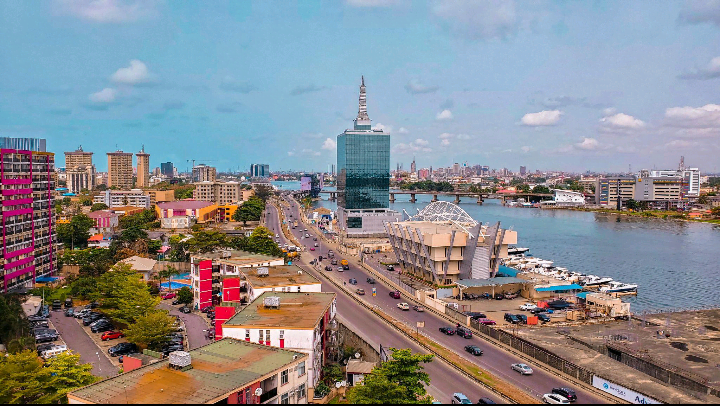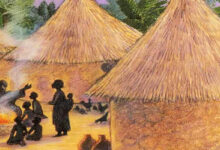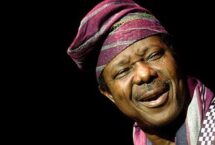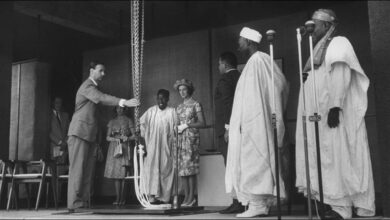Nigeria: A Tapestry of History and Cultural Riches

Nigeria’s history and cultures are a testament to the country’s incredible diversity and resilience. From ancient civilizations and rich kingdoms to colonial struggles and independence, Nigeria’s past has shaped its present-day identity.
The country’s diverse ethnic groups, languages, and traditions create a vibrant tapestry of cultural expressions. Through art, music, literature, and cuisine, Nigeria continues to captivate the world, leaving an indelible mark on the global stage. As Nigeria moves forward, its history and cultures serve as a foundation for embracing its diversity and celebrating its unique heritage. So take a break from using bet Senegal and learn about the intricate history and cultures of this wonderful gem.
Ancient Civilizations and Kingdoms
Nigeria boasts a captivating history that traces back to some of Africa’s oldest known civilizations. One of the most notable ancient civilizations was the Nok culture, which flourished between 1000 BCE and 300 CE. The Nok people were skilled artisans, renowned for their exquisite terracotta sculptures, which provide valuable insights into their social and cultural practices.
In subsequent centuries, the powerful empires of the Kanem-Bornu, Oyo, and Benin rose to prominence. The Kanem-Bornu Empire, located in northeastern Nigeria, flourished between the 9th and 19th centuries and played a significant role in trans-Saharan trade.
The Oyo Empire, centered in southwestern Nigeria, reached its zenith in the 17th century and was renowned for its military prowess and political organization. The Benin Empire, known for its intricate bronze castings, thrived between the 13th and 19th centuries and maintained a complex socio-political system.
Colonial Legacy and Independence
The 19th century marked a significant turning point in Nigeria’s history with the arrival of European colonial powers. The British Empire gradually established its control over various regions, exploiting natural resources and imposing its governance system. Nigeria, with its amalgamation of diverse ethnic groups, became a British protectorate in 1901. However, the desire for self-determination and independence grew among Nigerians. The nationalist movement gained momentum, spearheaded by influential figures such as Herbert Macaulay, Nnamdi Azikiwe, and Obafemi Awolowo. After decades of struggle and negotiations, Nigeria achieved independence on October 1, 1960, becoming Africa’s most populous nation.
Cultural Diversity and Ethnic Traditions
Nigeria’s cultural landscape is remarkably diverse, encompassing over 250 ethnic groups, each with its unique customs, languages, and traditions. The three largest ethnic groups are the Hausa-Fulani, Yoruba, and Igbo, which constitute the majority of Nigeria’s population. The Hausa-Fulani, concentrated in the northern regions, have a rich history of Islamic influence, while the Yoruba, based in the southwest, are known for their vibrant arts and festivals. The Igbo, residing in the southeast, have a rich cultural heritage, including masquerade traditions, storytelling, and the renowned Igbo-Ukwu bronzes.
Nigeria’s cultural diversity is further reflected in its cuisine, with each region boasting its distinctive flavors. From the northern delicacies like suya (spiced grilled meat) and tuwo shinkafa (millet pudding) to the southwestern jollof rice and the eastern afang soup, Nigerian cuisine tantalizes taste buds with its rich and varied offerings.
Art, Music, and Literature
Nigeria has produced a multitude of artistic and literary talents that have gained global recognition. In the realm of art, Nigerian painters such as Ben Enwonwu and Yusuf Grillo have made significant contributions to the contemporary African art scene. Traditional art forms, such as woodcarving and pottery, also thrive in various regions.
Music occupies a central place in Nigerian culture, with genres like highlife, juju, afrobeat, and fuji gaining international acclaim. Legends like Fela Kuti, King Sunny Ade, and Burna Boy have left an indelible mark on the global music landscape.
Nigeria’s literary scene has birthed literary giants like Chinua Achebe, Wole Soyinka, and Chimamanda Ngozi Adichie, who have earned accolades and sparked critical conversations through their works. Nigerian literature tackles a wide range of themes, exploring the country’s colonial legacy, cultural complexities, and societal challenges.
Nollywood: The Nigerian Film Industry
Nigeria’s influence on the global entertainment industry cannot be overlooked, particularly when it comes to Nollywood, the country’s vibrant film industry. Nollywood has earned its place as the world’s second-largest film industry in terms of output, surpassing Hollywood in sheer volume. Nigerian films, known for their distinctive storytelling and dramatic flair, have gained popularity both within and beyond Africa’s borders.
Nollywood emerged in the 1990s, primarily driven by the need to tell local stories and reflect the realities of everyday Nigerians. With its low-budget productions and grassroots distribution methods, Nollywood films captured the hearts of audiences across the continent. The industry has showcased Nigeria’s diverse cultures, social issues, and aspirations, contributing to the nation’s cultural identity.
In recent years, Nollywood has experienced significant growth and evolution. Filmmakers have embraced higher production values, international collaborations, and diverse storytelling genres. Nigerian actors and filmmakers, such as Genevieve Nnaji and Kunle Afolayan, have gained global recognition and received accolades at international film festivals. Nollywood continues to play a vital role in shaping Nigeria’s cultural narrative and projecting the country’s creative prowess worldwide.
Religious Diversity and Coexistence
Religion holds a significant place in the lives of Nigerians, contributing to the country’s cultural fabric. Nigeria is divided roughly between Christianity and Islam, with a sizable population still practicing traditional indigenous religions. This religious diversity has fostered a unique environment of coexistence and interfaith dialogue.
Christianity was introduced to Nigeria by European missionaries during the colonial era and has since grown to encompass various denominations. The Roman Catholic Church, Anglican Communion, and various Protestant churches have a significant presence in different regions of the country. Islam, brought by traders and scholars from the Sahel region, is predominantly practiced in the north, with the Hausa-Fulani ethnic group being largely Muslim.
Despite occasional tensions, Nigeria has a long-standing tradition of religious tolerance and cooperation. Interfaith marriages, shared celebrations, and joint efforts in community development are common, emphasizing the country’s commitment to peaceful coexistence. The annual Muslim-Christian Eid-el-Kabir celebration, locally known as Id-el-Kabir, brings people of different faiths together in festivities and mutual respect.
In addition to Christianity and Islam, traditional indigenous religions persist in many communities, preserving ancient customs, rituals, and beliefs. These traditional religions often interweave with Christianity or Islam, resulting in a unique syncretism that reflects the multicultural nature of Nigeria.
Questions? Advert? Click here to email us.













